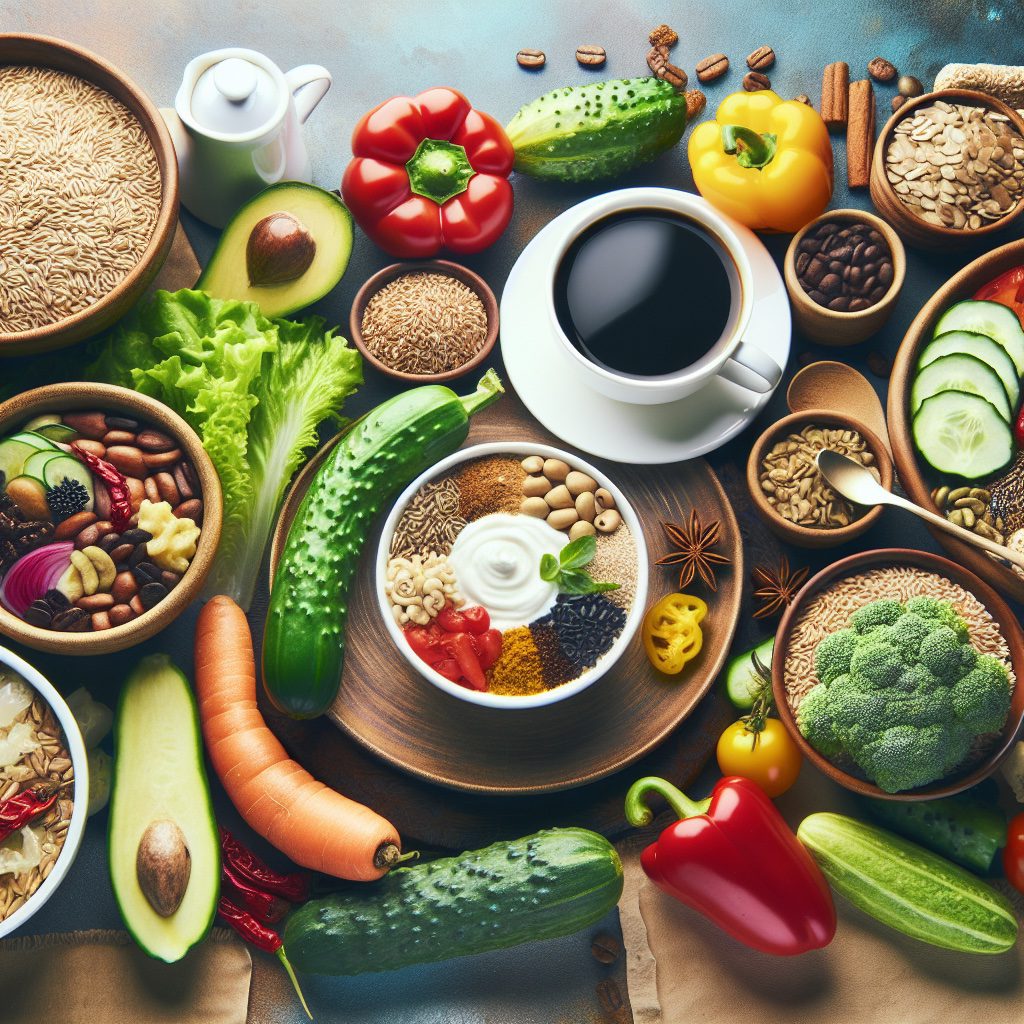Dear Dairy, it’s not you… actually, who am I kidding? It might totally be you. If your stomach has ever gurgled suspiciously after that second scoop of ice cream or your sinuses mysteriously clogged after your morning latte, you might be in a complicated relationship with dairy that’s overdue for some couples counseling – or perhaps a clean break.
Across the globe, more people are sliding into the DMs of dairy alternatives while ghosting traditional milk products. But this isn’t just another trendy dietary fling – there’s thousands of years of Eastern medicine wisdom suggesting maybe, just maybe, cow’s milk and human bodies weren’t meant to be lifelong soulmates.
When East Meets West in the Dairy Aisle
Picture this: you’re standing in front of the refrigerated section at your local grocery store, contemplating the expanding universe of milk options. Twenty years ago, you’d have had maybe three choices: whole, skim, or (gasp) 2%. Now there’s an entire galaxy of alternatives vying for space in your shopping cart. This explosion of options isn’t just a Western phenomenon – it’s deeply rooted in Eastern cultural traditions and medicine.
In fact, if you were to teleport to a traditional market in many Asian countries, you’d discover something fascinating: dairy has historically played a supporting role at best, often completely absent from the nutritional stage. This isn’t a coincidence or culinary preference – it’s biology having a laugh at our expense.
Studies show up to 90 percent of South Asians are lactose intolerant, with similar statistics across East Asian populations. While Europeans were busy developing genetic mutations allowing them to digest milk into adulthood (thanks to thousands of years of dairy farming), many Eastern populations never got that particular upgrade. Their bodies essentially said, “Milk? After childhood? That’s gonna be a no from me.”
This biological reality shaped culinary traditions that focused on plant-based alternatives long before they became trendy Instagram fodder. Soy milk, for instance, has been documented in China since the 14th century – not as a hipster alternative but as a practical solution to a biological constraint. That’s right, your ultra-modern oat milk latte has ancient roots that would make even the most seasoned barista’s mustache curl with respect.
Why Eastern Medicine Gives Dairy the Side-Eye
Traditional Chinese Medicine (TCM) doesn’t just avoid dairy because of lactose intolerance – it views excessive dairy consumption with the same suspicion your grandmother might view a teenager with too many piercings.
According to Eastern medicine principles, dairy is often classified as contributing to “dampness” in the body. If you’re wondering what “dampness” means in this context, imagine your body as a perfectly balanced ecosystem. Now imagine someone dumping a bucket of water into that ecosystem. Things get soggy, flow is disrupted, and suddenly that pristine balance resembles a wet weekend at an outdoor music festival.
This dampness manifests as what Western medicine might recognize as inflammation, mucus production, digestive sluggishness, and even skin issues. It’s like dairy crashes your body’s party, spills drinks on the furniture, and then refuses to help clean up. TCM practitioners have observed these effects for centuries, noting that dairy can lead to increased phlegm production and congestion – particularly in people already prone to respiratory issues.
Picture your sinuses as exclusive nightclubs. Dairy shows up like an unwanted guest, flashes a fake ID, and suddenly the place is overcrowded with mucus, everyone’s uncomfortable, and the bouncer (your immune system) is working overtime. No wonder you wake up stuffy after that bedtime cheese binge!
Of course, not everyone experiences these effects equally. Eastern medicine emphasizes personalized approaches to health – what HerbalsZen calls “Personalized Wisdom.” Your unique body constitution determines how you respond to different foods. Some people can handle dairy with no issues, while others might need to send that milk carton packing after the smallest sip.
The New Suitors: Plant-Based Alternatives Swiping Right
Enter the smooth-talking, environmentally-conscious, digestively-friendly alternatives to traditional dairy. If milk were a dating app, plant-based options would be dominating the swipe-right statistics.
Soy milk, the OG of plant-based alternatives in Eastern cultures, brings protein-packed credentials and thousands of years of cultural cred to the table. But it’s no longer the only player in town. Almond milk struts in with its low-calorie profile and subtle flavor, while oat milk flexes its creamy texture that makes baristas swoon. Coconut milk brings tropical vibes and MCT fats to the party, and rice milk offers the gentle, sweet personality that sensitive stomachs appreciate.
Each of these milk alternatives has its own unique personality and nutritional profile. They’re like the cast of a reality dating show, each vying to be your perfect match:
“Hi, I’m Almond Milk. I love long walks on sustainable farms and have 50% fewer calories than that dairy milk you’ve been hanging out with. I’m also rich in vitamin E, which is great for your skin. Call me?”
“Oat Milk here! I’m the creamiest of the bunch and mix well with others. Your coffee will never know you’ve moved on from dairy when I’m around. Plus, I’m packed with fiber. That dairy milk never gave you fiber, did it?”
“Coconut Milk’s the name. I bring tropical flair and medium-chain triglycerides to the relationship. Some find me a bit high-maintenance (calorie-wise), but I promise to make your curries unforgettable.”
“Rice Milk. I’m hypoallergenic, sweet, and go with everything. I’m not as nutritionally dense as the others, but if you’re looking for something light and easy-going, I’m your milk!”
The best part? These alternatives aren’t just easier on your digestive system – they’re generally kinder to the planet too. Producing a single liter of cow’s milk requires significantly more water and generates more greenhouse gases than any plant-based alternative. Your body and Mother Earth might both be sending you the same message: it’s time to see other milks.
Eastern Wisdom Meets Modern Sustainability
This shift toward plant-based alternatives represents a fascinating convergence of ancient Eastern wisdom and modern sustainability concerns. Eastern medicine has long emphasized living in harmony with nature – what HerbalsZen refers to as “Seasonal Synchronicity.” This philosophy extends beyond personal health to ecological health, recognizing that our bodies are not separate from the environment but deeply interconnected with it.
The Asia Pacific region is currently the largest market for plant-based milk alternatives globally, generating revenue more than double that of North America. This isn’t just because of lactose intolerance rates – it reflects a growing awareness of both health and environmental impacts of food choices.
In China, where dairy consumption has been historically low but increased in recent decades due to Westernization of diets, there’s now a push back toward plant-based options. Companies like Oatly have explicitly stated their business strategy in China is focused on “driving Chinese consumers away from cow milk and into plant-based alternatives for the sake of the planet.” This approach resonates with both traditional wisdom and contemporary concerns.
This integrative approach – honoring ancient knowledge while embracing modern innovations – perfectly embodies HerbalsZen’s philosophy of bridging Eastern wellness wisdom with technological advancements. Rather than seeing tradition and innovation as opposing forces, they can complement each other, creating solutions that are both time-tested and forward-thinking.
Listening to Your Body’s Breakup Speech
If you’ve made it this far, you might be wondering: “Should I dump dairy completely?” The answer, like most things in Eastern medicine, isn’t one-size-fits-all. HerbalsZen’s principle of “Wholeness Over Symptoms” reminds us to look at the complete pattern of your body’s responses rather than focusing on isolated symptoms.
Instead of making sweeping dietary changes based on trends, consider taking a more personalized approach. Here’s how to tell if your body might be ready to see other milk options:
Track your responses: Notice how you feel after consuming dairy. Digestive discomfort, increased mucus production, skin breakouts, or unexplained fatigue might be your body’s way of saying “It’s not working out.”
Try an elimination period: Remove dairy completely for 2-3 weeks, then reintroduce it slowly while monitoring your body’s reaction. Sometimes absence makes the heart grow fonder – other times it makes you realize you didn’t need that relationship in the first place.
Consider your ancestry: If your genetic background includes populations with high rates of lactose intolerance, you might have inherited that trait. Eastern Asian, Southeast Asian, West African, and certain Mediterranean ancestries often come with higher lactose intolerance rates.
Explore alternatives mindfully: Don’t just swap one processed food for another. Look for plant-based milks with minimal additives and sweeteners. Better yet, try making your own at home!
Seek balance, not perfection: Eastern medicine emphasizes moderation rather than extremes. Perhaps your body can handle occasional dairy without issues, or maybe specific forms (like fermented dairy) work better for you than others.
This approach to nutrition – personalized, balanced, and attuned to your body’s signals – embodies what HerbalsZen calls “Empowered Self-Healing.” Your body possesses innate intelligence about what nourishes it best. Our role isn’t to prescribe universal rules but to help you decode your body’s unique language.
A New Relationship Status with Food
As we navigate the increasingly complex world of nutrition, Eastern medicine offers a refreshingly simple perspective: food is medicine, and the best medicine is personalized. Whether you decide to break up with dairy completely, maintain an occasional casual relationship, or discover you’re one of the lucky few who can maintain a lifelong commitment, the important thing is making that choice based on your body’s actual needs rather than external pressures.
HerbalsZen’s AI-powered “Food Wisdom Master” represents this philosophy in action – transforming complex traditional Chinese nutrition principles into accessible guidance tailored to your unique body constitution and changing seasons. It recognizes that true health emerges from balance – when Eastern holistic understanding meets Western scientific knowledge, when traditional wisdom embraces modern innovation.
So the next time you stand before that ever-expanding milk section, remember you’re not just choosing a beverage – you’re participating in a tradition of nutritional wisdom that spans cultures and millennia. Your body is speaking to you. The question is: are you listening?
And if your body is indeed begging for a milky breakup, remember – there are plenty of other delicious options in the sea (or rather, in the plant kingdom). Sometimes the healthiest thing you can say is, “It’s not you, it’s… actually, it is you, dairy. I’m seeing almond milk now.”




